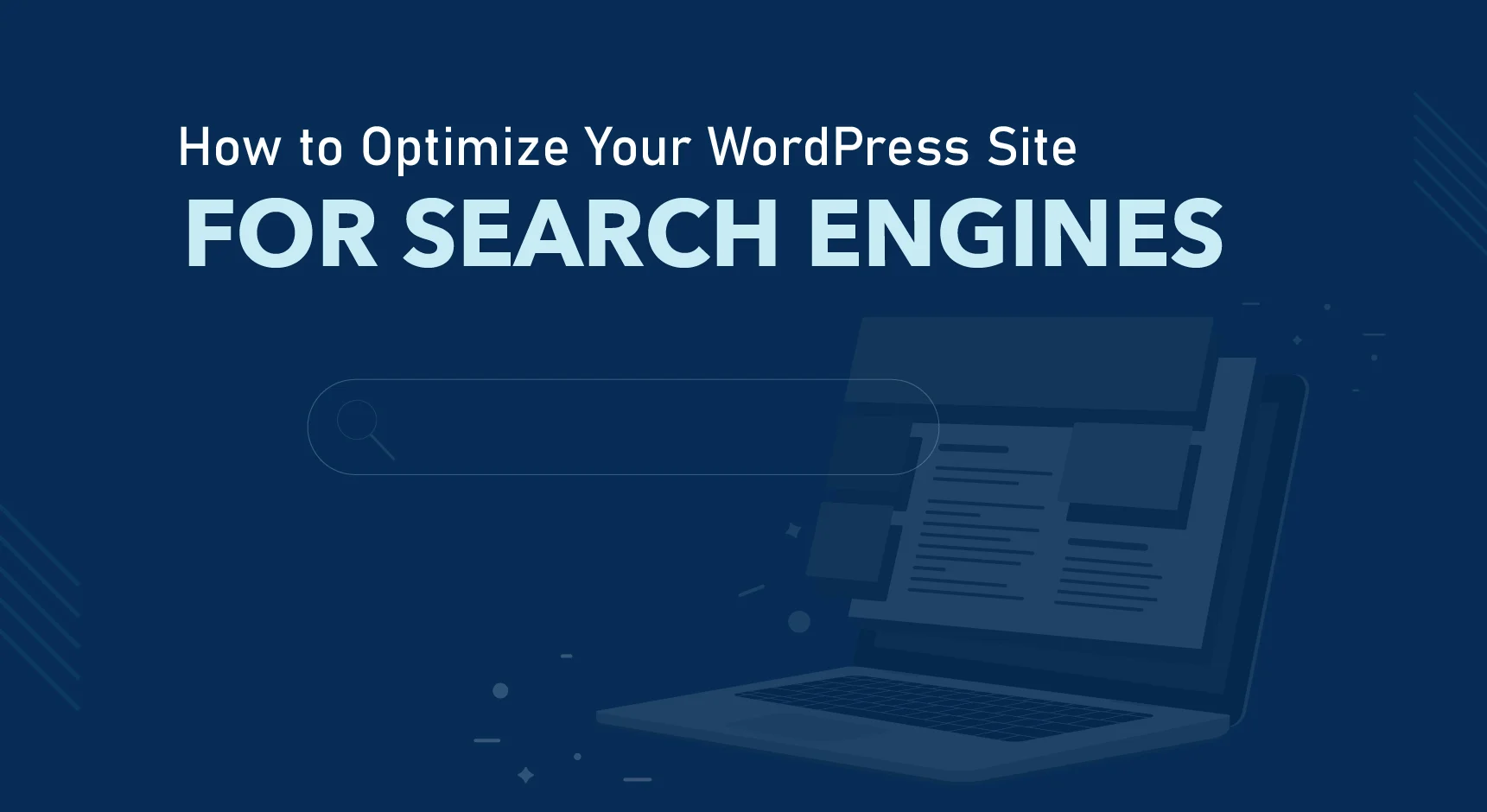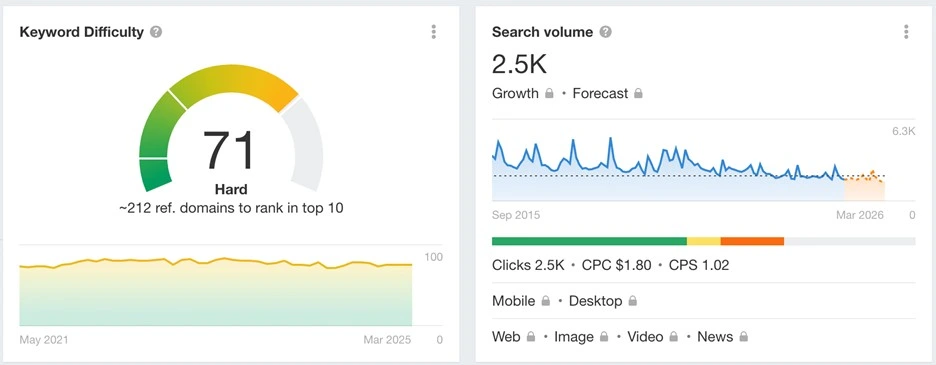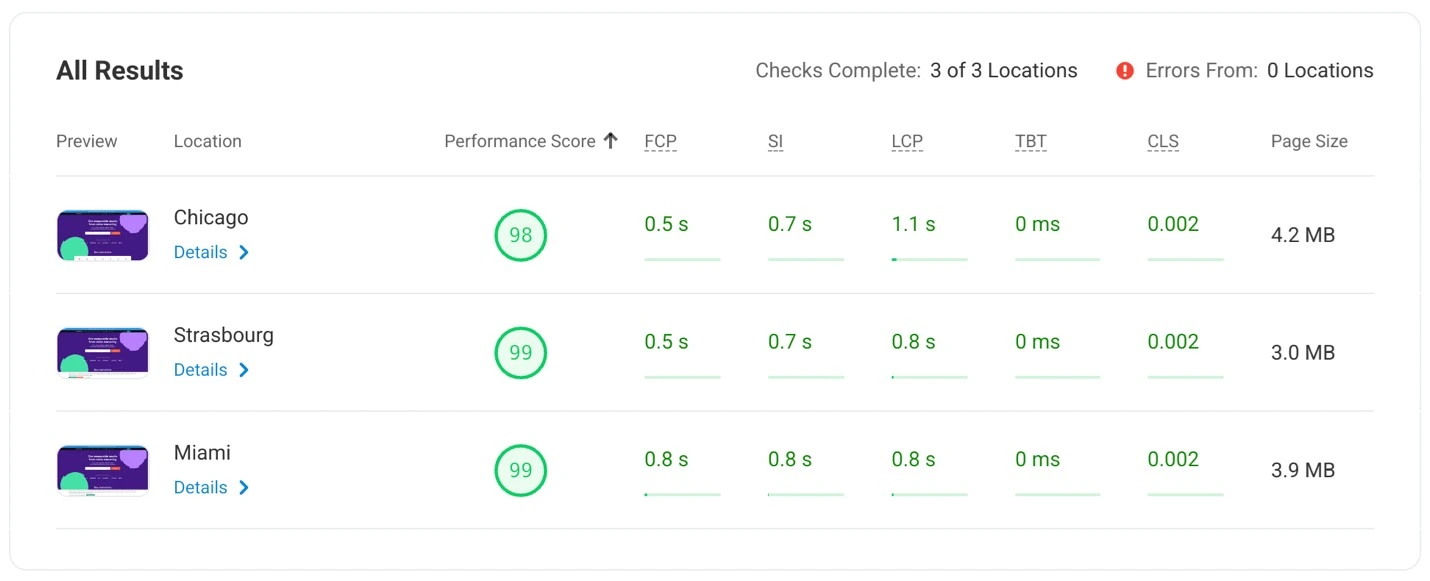


When discussing SEO metrics, something that is always a part of the conversation is the content management system (CMS).
The CMS is the tool that is responsible for adding and editing all types of digital media on your website. The advantage a CMS has is that it doesn't require extensive coding knowledge.
And when we talk about CMS, the most popular option for the last few decades has been WordPress. A whopping 43% of all websites are built on WordPress! So, to say it is one of the most successful CMS platforms out there isn't an exaggeration.
While it does have built-in tools for SEO, you need to know what buttons to push and knobs to turn to get the most out of it. Here are a few essential ways you can work on improving SEO performance for your WordPress-based website.
The most important choice that is going to dictate how well your website works with SEO is unequivocally the theme.
A few considerations that you need to have for your theme are that it should be fast, responsive, and have minimal bloat. Website loading speeds are vital when it comes to SEO performance, so you need a theme that is light and easy to load.
The theme should also adapt to different screen sizes with minimal delay, this is known as mobile responsiveness. It should have regular updates and proper customer support so you can get quick replies to your queries.
Last but not least, it should generate properly commented and usable SEO-friendly code. This is so that it's easy for you to tinker at the backend if you need to. Some of the more popular SEO-friendly themes are Divi, GeneratePress, and Customify.
The next most important step in your SEO process is to choose an SEO plugin. Are you wondering why you need an SEO plugin?
The answer is simple - it makes things so much easier. While it is not a necessity, it gives first-time users so many benefits. SEO plugins can help you find all your metadata in one place which makes it easier to read and edit them.
It can help set meta titles and descriptions, optimize URLs and images, and manage keywords. The more technical aspects of SEO like indexing and XML sitemap generation are also handled by the SEO plugin. The most used SEO plugins for WordPress are Yoast SEO and Rank Math .
These have a huge number of followers and detailed documentation on them so you'll never be left stranded with doubts.
If you've heard of the term SEO then you already know how important keywords are to the process.
Proper keyword research forms the basis for every successful SEO. Its importance cannot be understated, even multi-million-dollar SEO campaigns sometimes fall apart because of improper keyword analysis and research.

The goal is to target long-tail keywords to be used on your website and in content pieces.
It is also a good idea to compare your competitors' keyword profiles to yours to understand where gaps occur in your campaign. While it is important to prioritize low-competition, high-traffic keywords, it doesn't have to be strictly that way.
Keep an open mind when it comes to the final keyword profile. It is vital to understand search intent alignment when it comes to keyword choices. Opt for professional tools like Ahrefs, SEMrush, or Ubersuggest to get the best keywords in the niche.
The rule of thumb when it comes to engagement on any website is the content it hosts. The better the quality of content, the more chances it has of attracting the right demographic.
Content quality is most likely to lapse in the case of video because it is challenging and expensive to get the setup right. Content should be original and not plagiarized from other sources.
Adapting content and researching to add more to existing content is a great way to get your content piece. Also, it is vital to remember that the content should be factually accurate. Exaggeration can only land you in trouble with your audience.
For written content, ensure that you've added the right heading tags so people can scan through it with very little effort. When your article is a bit more technical, adding an FAQ works wonders both for the audience and SEO.
One of the biggest culprits when it comes to slowing down a website has to be images. Optimizing images does not just help you load websites faster, but it also helps with highlighting important metadata which is vital for SEO strength.
You must compress all the images used on your website and have auto-playing videos only when necessary. You can compress your images through tools like TinyPNG and ShortPixel.

Adding alt text to all your images is vital for your SEO metrics. Alt text should be as descriptive as possible without being too long. Since search engines cannot decode images, they rely on alt text to categorize them.
While the most used image standard is JPG, it is a good idea to switch to WebP format because it offers slightly better performance. It also discourages people from downloading your images, so that's another plus.
Site loading times are perhaps one of the most competitive SEO metrics on search engine results today. It is a ranking signal that all top results strive to optimize because it produces great results.
If your website is slower than your competitors, it is almost certain that you'll be ranked below them regardless of your other strengths. But, thankfully, there are several ways you can improve your website's loading times and get on top of searches.

The most popular method is to use caching plugins like WP Rocket and W3 Total Cache.
Caching plugins work by giving users who browse your website a static version without having to do all that heavy processing. This is significantly quicker because there is no need to load up other plugins or remote data.
Even if you have to load data, you can work on optimizing your databases and keeping them clean of spam. Finally, choose a fast hosting service provider, with servers close to you and your demographics.
Mobile responsiveness is the ability of websites to change their resolution based on the screen size of the current device. Like loading speed, this is another vital ranking signal on searches. Mobile traffic accounts for 60% of all digital traffic.
With mobile traffic outpacing other sources of traffic, mobile responsiveness is the need of the hour when you want to rank your WordPress website.
Many WordPress themes are mobile responsive so there is no need to worry. You can evaluate your website with Bing's Mobile-Friendly Test which not only checks mobile responsiveness but also other factors important to SEO.

It's a good idea to optimize various elements users use to interact with your website like buttons, links, and menus.
A website's link profile is important for both users and SEO strength. Ensure that all your important pages are linked to authority websites (external) as well as relevant pages or articles on your website (internal).
You mustn't be spammy with links or force keywords into them. The selection of anchors should be natural and only where required.
Running regular audits of your website links is a good idea, especially when it comes to external links. Correct broken links and 404s as soon as you see them because they can drastically affect your SEO.
Excessive outbound links can be detrimental and have the opposite effect. Screaming Frog SEO Spider is a great tool for this very purpose. It has a free and paid version so you can try it before you buy.
Rich snippets are search elements that have been attracting quite a lot of attention. The reason is that it features above the first-ranked link and has a snippet of information related to the query. This makes it more likely to be clicked by the user, which automatically makes the most desirable place to be featured on searches.
While it isn't easy to be featured on rich snippets for competitive keywords, the process is straightforward. Ensure that your website has proper breadcrumbs, bulleted FAQs, and review markup on the page. All these are important factors to be featured on rich snippets.
There are SEO plugins available that can help with this. Both Yoast SEO and Rank Math SEO which we featured earlier can help achieve this more easily.
An important albeit overlooked way to get a huge boost with SEO is to simply opt for HTTPS on your website.
HTTPS has the latest AES encryption, up to 256-bit, which makes it nearly impossible for unscrupulous people to intercept data to and from your website. It is simple to get HTTPS on your website, all you need to do is install an SSL certificate from your hosting provider.
If you have an older website, you might need to force HTTPS either through plugins or manually editing your .htaccess file. Plugins like Really Simple SSL make this task trivial and we recommend that you try it for your WordPress website.
Once you've got all this in place, you can relax, a bit at least! To ensure that you continue to have great SEO performance, have a proper audit process in place.
Track keyword rankings with tools like Google Search Console, SEMrush, and Ahrefs. It's also a great idea to keep tabs on organic traffic with the same tools and add Google Analytics to the mix.
Ensure that you add new pages to the sitemap and fix crawling and 404 errors that can crop up. If you find your SEO metrics going down, take a look at reports from plugins and tools to find out what you can do. Adjusting your SEO strategy is necessary and ensures that you have long-term success.
WordPress has been the go-to choice for millions of people because it is easy and modular. It offers a clean interface with thousands of useful plugins that make creating and managing your website a breeze.
The most popular plugins on WordPress for SEO are Yoast SEO, Rank Math SEO, and All-In-One SEO Pack. All of them are simple to set up and some of them offer advanced features you might need down the line.
How your WordPress website handles mobile SEO depends on your choice of themes and plugins. Responsive themes can automatically handle mobile SEO and ensure your website is mobile responsive. Ensure that you test your website with Google Mobile-Friendly Test.
The testing intervals vary for different aspects of your website. For general SEO performance, monthly audits are good. Broken links and other technical aspects can be checked once in three months. You must do an audit right after WordPress or search engine updates.
● Use tools on WordPress to make things easier - Google Analytics, SEMrush, and Ahrefs offer you everything you need.
● Choose the right plugins for WordPress SEO - Yoast and Rank Math are great places to start.
● Publish and share high-quality content on your website to get more engagement.
● Optimize and refine content and website speed to keep ahead of your competitors.
● Secure your website with HTTPS by opting for an SSL certificate from your service provider.
● Test and adjust your SEO process continuously at the start till you are confident.